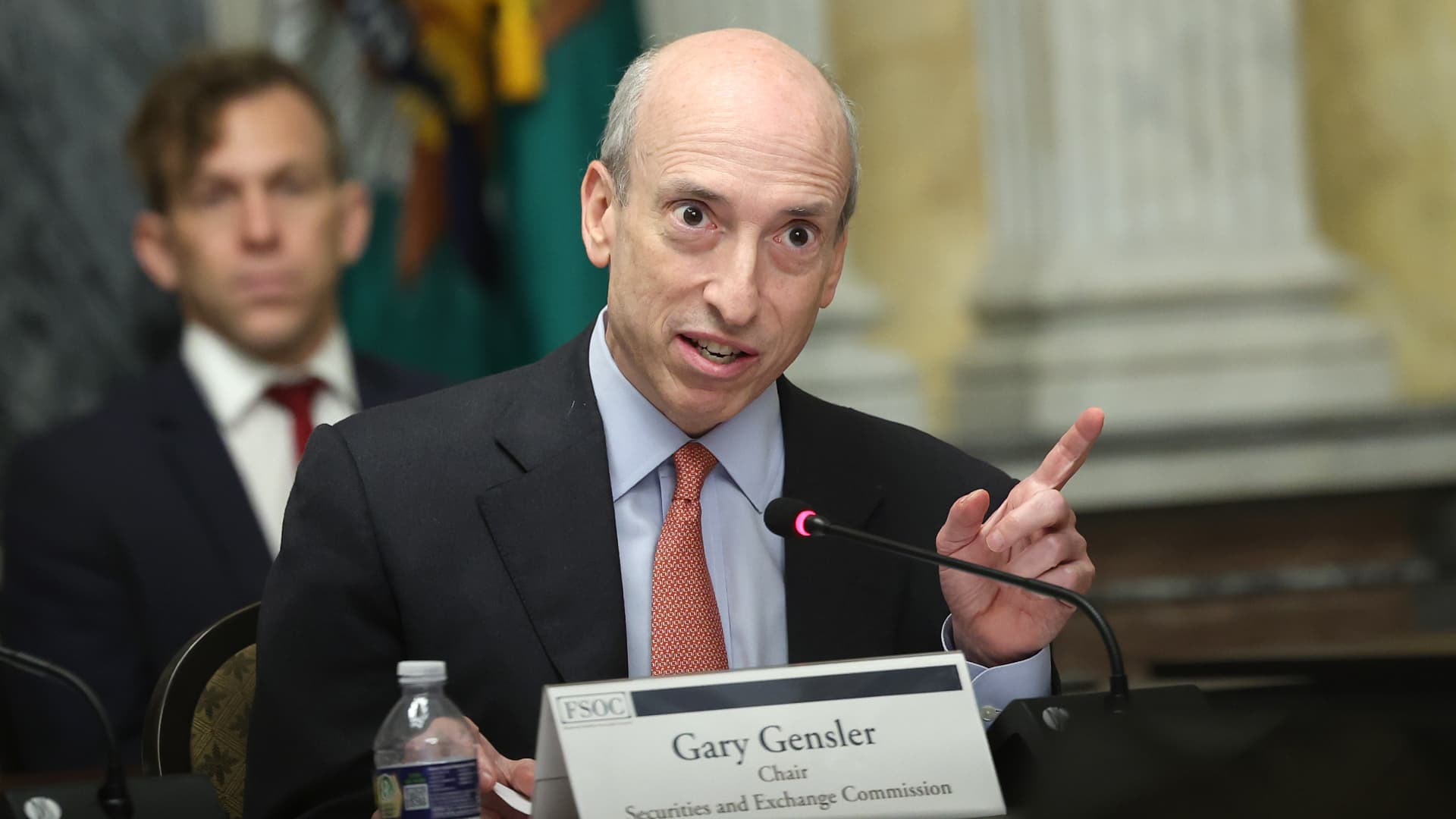The Chair of the Securities and Exchange Commission (SEC), Gary Gensler, is currently testifying before the House Financial Services Committee. This hearing will likely resemble his previous testimony before the Senate Banking Committee two weeks ago, which served as an opportunity for Republicans to criticize Gensler for what they perceive as excessive rulemaking proposals.
Republicans have become increasingly angry about Gensler’s ongoing introduction of over 40 rules. Their frustration has only grown now that he has started implementing these proposals.
Although criticism of Gensler is nothing new for Republicans, what sets this situation apart is that after almost three years under the Biden administration, the financial services industry (including hedge funds, mutual funds, market makers, trading firms, and exchanges) has shifted from attempting to negotiate with Gensler to adopting a more combative stance. Some industry players have even resorted to filing lawsuits against him.
In a recent editorial for Trader’s Magazine, Kirsten Wegner, CEO of the Modern Markets Initiative, wrote, “The industry (brokers and exchanges alike) are left with the only remaining tool at their disposal – a tool of last resort — litigation against the Commission.”
The industry’s complaints have been piling up for over a year, centering around concerns about excessive regulations, lack of industry input, absence of roundtable discussions, and failure to share data used to inform policy decisions.
The industry’s rhetoric towards Gensler has grown increasingly hostile and bitter. According to Wegner, “Comment letters” are a facade, as it’s virtually impossible for the market to digest and respond to thousands of pages of draft regulation in just a few months. Additionally, industry points are often disregarded without proper study or explanation.
Emergence of litigation
Last month, the Grayscale Bitcoin Trust, which seeks to convert to a bitcoin ETF, successfully sued the SEC, claiming that the commission had previously approved a similar product in bitcoin futures, rendering their actions arbitrary and capricious. The SEC is currently considering an appeal.
Now that Gensler has implemented several rules that were still in the proposal stage, the industry has adopted a more litigious approach. For instance, six financial trade associations recently sued the SEC over its new Private Funds Adviser Rule, which mandates registered private fund advisers to undergo an annual financial statement audit. These associations argue that the SEC exceeded its statutory authority and acted arbitrarily and capriciously.
Gensler also appears to be engaged in open conflict with Virtu Financial, one of the largest market makers globally. The SEC recently sued Virtu, accusing the company of failing to implement measures to safeguard sensitive customer data and of making materially false and misleading statements regarding information barriers. Typically, such cases would result in a quiet settlement, but that outcome seems unlikely this time. Virtu claims that the suit represents an “escalation” of a lengthy investigation due to the CEO’s outspoken criticism of the SEC’s market structure rule proposals, which have not yet been adopted. Virtu intends to aggressively defend itself in court against what it perceives as baseless allegations.
Gensler faces scrutiny for proposed and adopted rules
Republicans will undoubtedly use this opportunity to address some of the major issues that Gensler has tackled. One such issue is climate-related disclosures, which were proposed in March 2022 but have not yet been adopted. These rule changes would require publicly-traded companies to disclose detailed emissions data and climate risk management strategies, including greenhouse gas emissions from their supply chains. Republicans argue that this proposal exceeds the SEC’s mandate. In his prepared testimony, Gensler clarifies that the SEC does not have a role in climate risk itself, but emphasizes the importance of public companies providing complete and truthful disclosures about the material risks they face.
Other rules that have already been adopted, such as cybersecurity regulations mandating the disclosure of cybersecurity incidents within a certain timeframe, will likely be criticized as well for going beyond what is necessary.
Furthermore, Gensler’s enforcement actions against crypto intermediaries, based on the assertion that the tokens they offer are securities, will likely provoke further scrutiny from Republicans.
As for the bitcoin ETF lawsuit, Gensler has made it clear that he is unable to comment on ongoing litigation.
What lies ahead?
It is evident by now that Gensler is not backing down and will continue to issue new rules, given that he holds a 3-2 majority at the commission.
Gensler will reiterate his commitment to reasonableness and attentiveness to industry concerns. Regarding the climate change proposal, he highlights that the SEC has received over 15,000 comments and assures that the staff, and ultimately the Commission, will consider adjustments to the proposed rule that they deem appropriate based on these comments.
However, despite these reassurances, critics will unlikely be appeased. Some hope that a few Democrats will join the Republicans in urging Gensler to slow down. Last year, a dozen Senate Democrats sent a letter to Gensler requesting extended deadlines for proposed rules and sufficient time for notice and comment.
Recently, 32 members of Congress, including 16 Republicans and 16 Democrats, expressed concerns about the SEC’s approach to equity market structure proposals made in December 2022 but not yet adopted. They argue that the SEC’s economic analysis in this regard remains incomplete. It remains uncertain whether this will influence Gensler’s position on this particular rule proposal.
Now that Gensler has started implementing many of these rules, the financial services industry seems poised to respond with lawsuits.
Denial of responsibility! Vigour Times is an automatic aggregator of Global media. In each content, the hyperlink to the primary source is specified. All trademarks belong to their rightful owners, and all materials to their authors. For any complaint, please reach us at – [email protected]. We will take necessary action within 24 hours.


